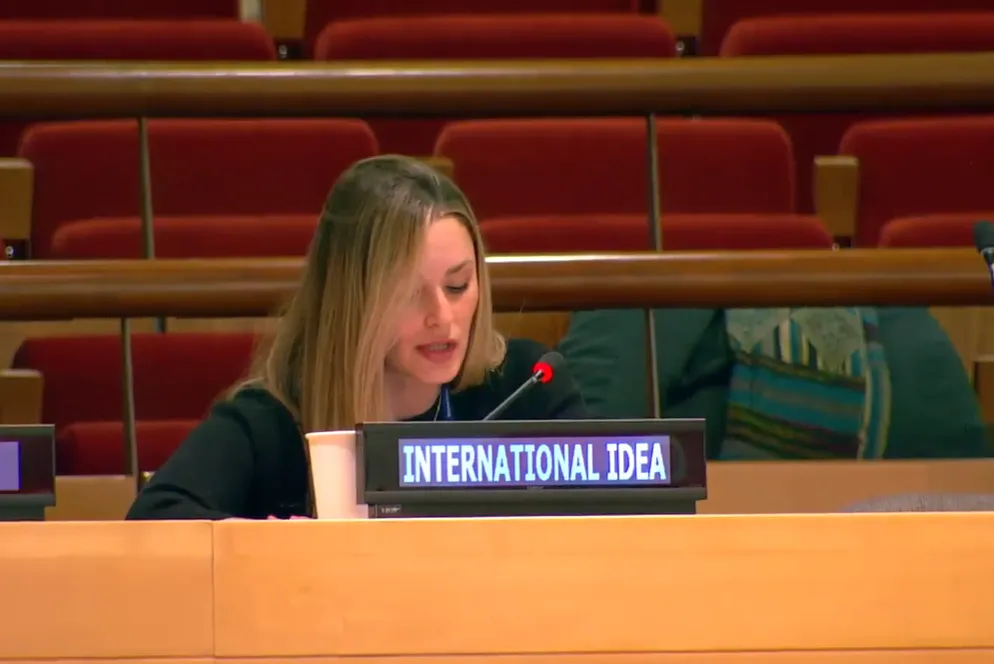UN Global Digital Compact: First Informal Consultation

“Global Digital Compact: First Informal Consultation”
12 February 2024
UN Headquarters, New York
Statement by
International Institute for Democracy and Electoral Assistance (IDEA)
We would like to thank the co-facilitators of Sweden and Zambia for the opportunity to provide inputs into this first informal consultation of the Global Digital Compact. International IDEA is an intergovernmental organization with the mandate to strengthen democracy worldwide. As we look at technology through the lens of democracy, we would like to focus our comments on the key areas of the digital divide, the governance of Artificial Intelligence (AI), and leaving no one behind, following the guiding questions shared ahead of this meeting.
Inclusion to Mitigate the Digital Divide. Digital technologies have become key infrastructure enabling human activity across all facets of life. Permanent access to digital technologies is increasingly becoming a pre-requisite for personal autonomy. During the COVID-19 pandemic, we witnessed how divergent levels of access to digital services online sharply increased inequalities globally. In this time and age, digital exclusion leads inevitably to social and political exclusion. The Global Digital Compact should consider access to digital technologies – particularly the Internet – as a fundamental entitlement for all human beings with full respect for democratic principles and human rights.
Governance of Artificial Intelligence. AI and other emerging technologies will have a significant transformative impact in the world. Therefore, we would like to highlight the importance of developing a democratic governance structure for AI that helps maximize its potential and minimize its most harmful effects. We are particularly concerned by AI’s growing role in spreading disinformation and hate speech that fuels toxic polarization, thus eroding the democratic fabric in both older and newer democracies. The Global Digital Compact should meaningfully address the risks that AI poses for democracy, and stipulate that AI data, systems, and business models be based on the democratic principles of transparency, accountability, inclusion, equity, protection of human rights and rule of law online.
Furthermore, we urge the Global Digital Compact to encourage countries to enable genuine multi-stakeholder conversations to develop jointly agreed standards, policies, regulations, and technological solutions that uphold democratic principles in all phases of the development of AI systems, and to create robust mechanisms for their independent oversight. While these frameworks need to be developed and adapted to each national context, their transnational nature requires multilateral approaches.
Leaving no one Behind. The Compact should also rest on the principles envisioned in the UN Charter, the Universal Declaration of Human Rights, and the 2030 Agenda for Sustainable Development. Leveraging digital technologies to accelerate implementation of the Sustainable Development Goals should be of priority. If we aim to leave no one behind, this Compact should address the enhancement of digital access for all as a universal public good, the inclusion of all countries in the digital economy, and investments in digital literacy to increase resilience to disinformation.
Principles of sustainability, human rights, transparency, and cooperation are all critical facets for the success of the Global Digital Compact. International IDEA reiterates its full support to this process. We encourage Member States to make the most of this opportunity to help bridge the digital divide and make digital technologies accessible to all, with full respect for democratic principles and human rights.
